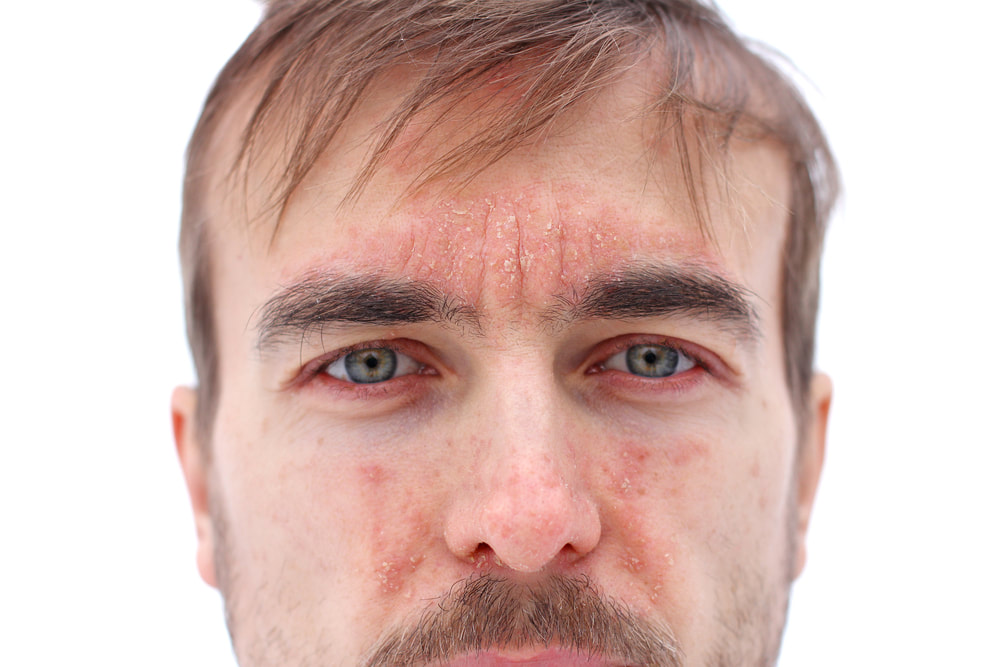What is Psoriasis?According to the National Psoriasis Foundation, psoriasis is an immune-mediated disease, which affects about eight million people in the United States. What happens is something triggers the immune system to attack healthy skin cells. Extra skin cells develop in days instead of weeks. The increased skin cells form patches or plaques on the skin. The patches can occur anywhere on the body, but most commonly are found on the hands, feet, and joints. They may also affect the eyelids and skin around the eyes. Research published in the Journal of Trichology indicated that about 10 percent of people with psoriasis have eyelid involvement. Symptoms of Psoriasis Around the EyesThe size of the patches and the symptoms of psoriasis around the eyes may vary in severity. Possible symptoms of psoriasis around the eyes include: • Itching • Burning or tightness around the eyelids • Crusting and redness around the eye • Eye pain during movement • Eyelashes that rub and irritate the eye Dryness around the eyes can also cause the rims of the eyelids to turn slightly up or down. Although rare, psoriasis can also affect the eye itself and lead to dryness, inflammation, and even vision problems. Causes and RisksThe reason the immune system reacts incorrectly to the skin cells of the body is not entirely known. It appears that a combination of genetics and environmental factors contribute to the development of psoriasis. For instance, in people that are genetically predisposed to psoriasis, stress or trauma to the skin may lead to the condition. Treatment for Around the EyesTreatment for psoriasis around the eyes may include the following:
Topical ointments: Topical creams and lotions will not cure psoriasis. But medication applied to the skin around the eye can help reduce symptoms. Ointments prescribed may contain steroids to decrease inflammation. Creams have to be used with caution. The skin around the eyes is fragile and is susceptible to damage. Another class of topical creams is called calcineurin inhibitors. They decrease symptoms of psoriasis by targeting the immune system. Oral medications: Oral medications may also be prescribed to treat psoriasis. Oral drugs are usually only used when psoriasis symptoms are severe and other treatment does not work. That is because many of the medications cause significant side effects. Different classes of oral drugs are available to treat severe psoriasis, including retinoids. Retinoids are a type of vitamin A and may help slow the overproduction of the skin cells. Cyclosporine, which suppresses the immune system, is also sometimes used to treat psoriasis. Another class of drugs called antimetabolites might be prescribed. The medications slow skin cell growth, which stops the patches from developing. People that are prescribed oral medications for psoriasis need to be monitored carefully for side effects. Personal hygiene: Psoriasis around the eyes also requires specific personal hygiene measures to prevent further irritation. Be sure to avoid cosmetics and facial moisturizers that contain fragrances, which can further irritate the skin around the eyes. Instead, choose makeup for sensitive skin. If patches of psoriasis are located on your eyelids, skip eyeliner and mascara until you talk with your doctor. Even eye makeup for sensitive skin can be irritating. Be careful when washing your face. Wash the eyelids and around the eyes with cool water instead of hot. Cool water is more soothing to the skin and won’t dry it as much as hot. If you have psoriasis around the eyes, it is essential to see a doctor for proper treatment. If you have any questions, we are happy to help. Also, if you would like to schedule an appointment, please phone our office at 508-746-8600. Comments are closed.
|
EYE HEALTH BLOGCategories
All
Archives
July 2024
|
|
Kadrmas Eye Care New England
55 Commerce Way, Plymouth, MA 02360
14 Tobey Road, Wareham, MA 02571 133 Falmouth Road (Rt 28), Mashpee, MA 02649 |
Phone Number:
1-508-746-8600 Hours: Monday through Friday — 8 AM – 4:30 PM |


 RSS Feed
RSS Feed
